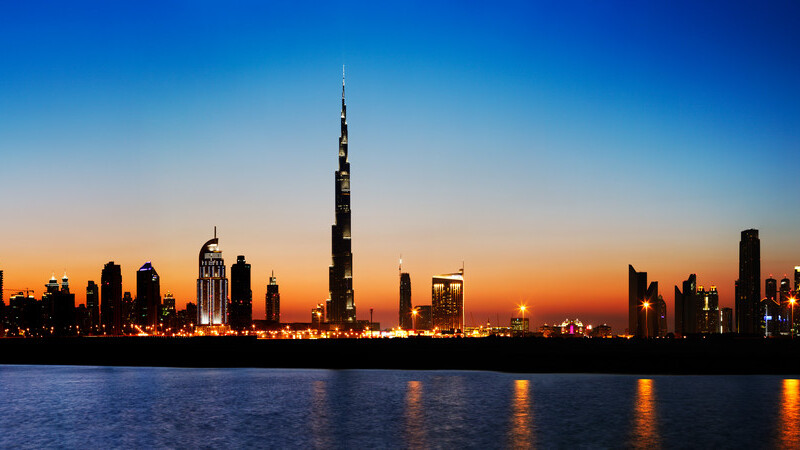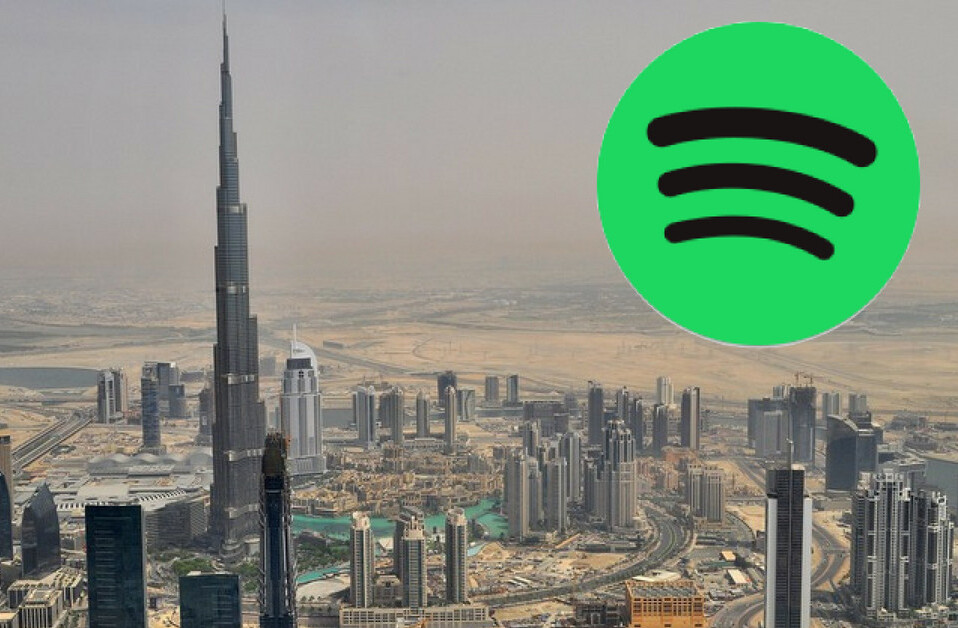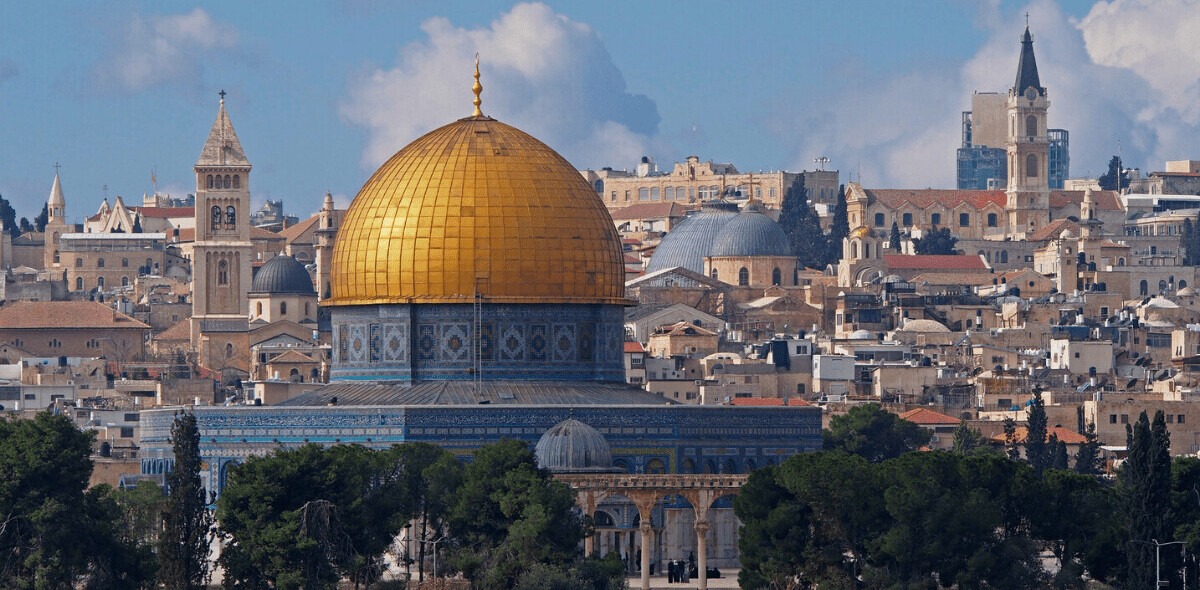
Dubai looks like what would happen if Donald Trump played Minecraft: ever more ridiculous towers bursting forth from the sand, steel and glass everywhere. At night, it feels like the city from ‘Bladerunner’ blessed with better weather.
What Dubai doesn’t feel like at first glance is a startup hub. Though it practically sweats money, it doesn’t immediately strike you as a hive of hustlers building scrappy new businesses. 30 years ago, the city state was an underdog, but now it’s defined by supercar-stuffed highways and other ostentatious expressions of wealth.
Dig a little deeper and Dubai’s potential to dominate the MENA region as the place for startups to set up shop becomes apparent. The first factor – before you even start to talk about the talent – is Emirates, the state airline, which has grown to become one of the world’s best carriers, and projects the tiny country’s influence globally.
With 2,000 flights a day taking off and landing at Dubai International Airport, the country has the necessary links with other parts of the region, as well as Europe and Silicon Valley, to bring talent and investors to its oasis. When they arrive, they’ll find a city with no shortage of local capital and a pragmatic government.
Dubai’s rulers have turned a blind eye to some startup developments, while explicitly blocking others. Uber – which is not strictly legal according to the country’s statutes – operates unchecked. Tinder, with its connection to sex, and cohabitation between unmarried people, has been somewhat ineffectually blocked — it’s still accessible but profile pictures don’t appear, making it an even more frustrating kind of dating roulette.

The difference between the two companies is obvious. Dubai remains hardline on what it considers to be morality issues, but Uber plays in to the country’s love of luxury and convenience. Services that appeal to those desires are likely to find its laws bending and eventually changing in their favor.
Though there are many differences between the Middle Eastern states, and Arabs have an abiding tendency to bicker and mock each other, they also present a potentially huge common market of over 200 million people, with a shared language and common values. The relative paucity of Arabic content online is a massive opportunity.
Dubai is well on its way to becoming the bridgehead for startups developing products for that market. At the STEP Conference – an Arab world remix of the Web Summit with a sliver of South By South West thrown in – the country’s gravitational pull for entrepreneurs from elsewhere in Middle Eastern was apparent. Lebanese startup founders seemed to be the most prominent among them.
The conference’s founder Ray Dargham hails from Beirut, and W Motors, the region’s first homegrown supercar company, whose $3.4 million Lykan Hypersport features in ‘Furious 7’, began life there. It’s now headquartered in Dubai.
It’s not that there were more Lebanese startups represented at the event, but that their founders seemed to be most willing to put themselves forward.
As an event, STEP, which is in its second year as a full-blown conference, had all the potential and teething problems of a young tech gathering. The Wi-Fi — despite Dargham telling me significant funds had been spent on it — was at best unreliable and at worst unusable.
It’s far from alone in that problem, of course. The far more established Web Summit featured a dramatic moment last year when it’s founder Paddy Cosgrave threatened to move the event out of Ireland if the venue owners didn’t finally put pay to its own connectivity nightmare.
STEP’s welcome party offered a moment of real cognitive dissonance: a kind of village fete set up outside the venue with food stalls and an all white band playing countrified pop covers.
Squatting with Dubai Marina’s armada of huge yachts on one side and imposing towers on the other, it felt even more artificial than indoor ski slopes in the Emirates and branches of ShakeShack. It may seem like an odd thing to highlight, but STEP could really benefit from tapping into the unique qualities of its location more.
Web Summit made its Dublin setting an advantage, a central selling point for its rhetoric about working and playing hard. It’s early days for STEP – it plans to expand from over 2,000 attendees this year to 6,000 in 2016 – but it should try to better reflect its home.
Of course, there’s a definite difference in experience between that of international visitors who’ve attended a lot of the conferences STEP models itself on, and regional participants.When I spoke to more local attendees, they were generally pleased to have an exciting event on their doorstep.
There’s still a problem with the ‘startup village’ model where companies get a little plywood stand and a sign featuring their logo to sell themselves. It makes it hard for them to stand out and I’d love to see more conference organizers experimenting with new formats.
The same goes for endless panel discussions and keynote presentations. At events like STEP, where the sound was not always up to scratch, the experience can become hypnotically monotonous.
That said, the stand-out quote of the day-long conference came from 500 Startups’ ever-combative, ever-entertaining Dave McClure: “It’s easier now to start a company anywhere in the world than it was to start one in Silicon Valley 20 years ago.”
500 Startups is putting its money where it’s mouth is in the region with Hasan Haider – who founded one of the region’s first angel groups –representing it, and over two dozen investments in local companies so far.
One of Dubai’s particular advantages over some of its neighbours is that it has not had oil wealth to lean on. That has given it a head start in looking for new ways to move forward.
Other countries, which now have their eye on diminishing stocks, are beginning to explore how fostering startups can help them in the future. At least one well-known accelerator is gearing up to announce a program in Kuwait, funded by the country’s sovereign wealth fund.
States with young tech-savvy populations, access to a huge market, and lots of local wealth are obviously going to appeal to investors. The Silicon Valley elite is depressingly comfortable with over-the-top luxury and privilege. Turning a blind eye to vast inequality and an underpaid workforce supporting growth is a familiar situation for them.
Airport window cleaners in Dubai. #nofilter
A photo posted by Mic Wright (@brokenbottleboy) on
Just as China has its own local giants like Alibaba, MENA will start to breed its own equivalents of Western successes in earnest over the next few years. The appropriately-named Souq.com is just one company that has that potential. Like Asian markets, the Middle East largely skipped the first generation of e-commerce and has jumped straight to mobile. Saudi Arabia is home to some of the world’s most voracious consumers of YouTube content.
For someone from outside the region, like me, the most interesting thing about STEP was how the specific culture of the Middle East feeds into its take on entrepreneurialism, the red lines and blind spots as much as the opportunities. The collision of social conservatism with pragmatism and a culture of small business ownership gives a very particular flavor to the region.
The runner-up in TechCrunch’s pitch competition event the day before the STEP conference kicked off was an e-commerce business run by a conservative religious couple – her in a full veil, him with the kind of beard that shows up hipsters for the dilettantes they are. She told the crowd she wasn’t as nervous as she might be because she could see them, but they couldn’t see her.
The Middle East can present a different face for the startup world and there are a lot of stories to be written there. If this trip taught me anything, it’s that we should spend a little more time hunting them down.
Feature image credit: Shutterstock
Read next: The Rise of Pakistan’s Startup Ecosystem
Get the TNW newsletter
Get the most important tech news in your inbox each week.





